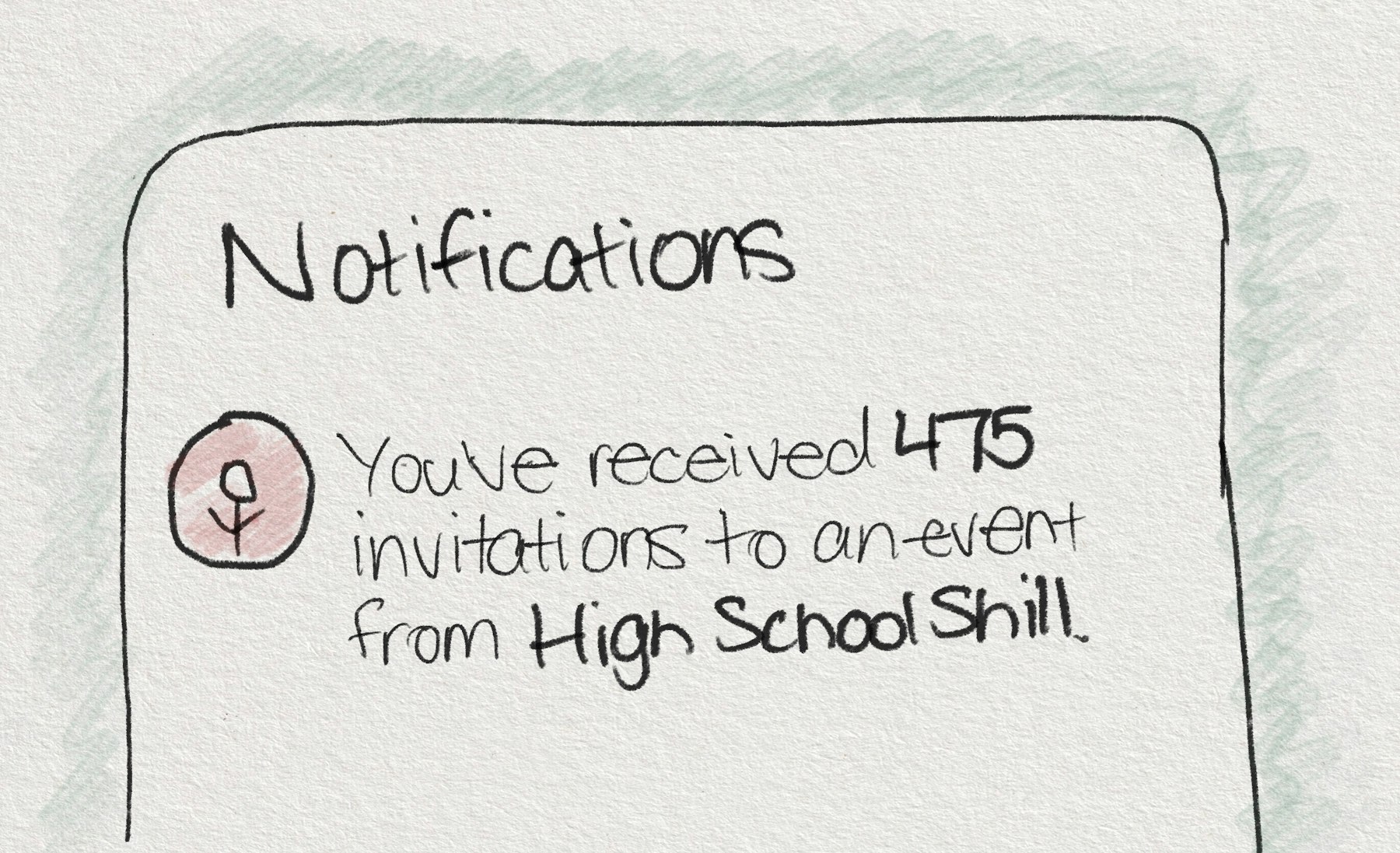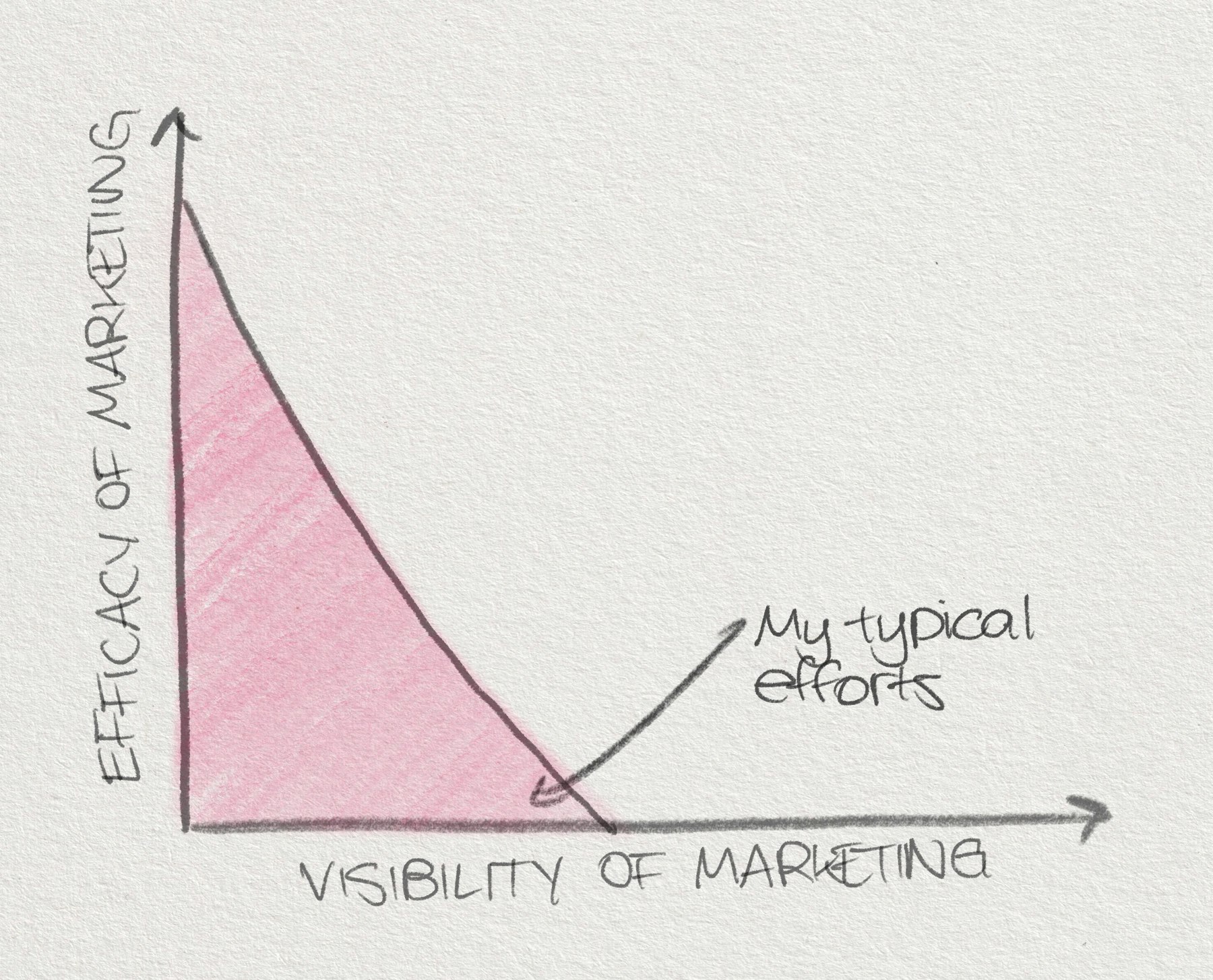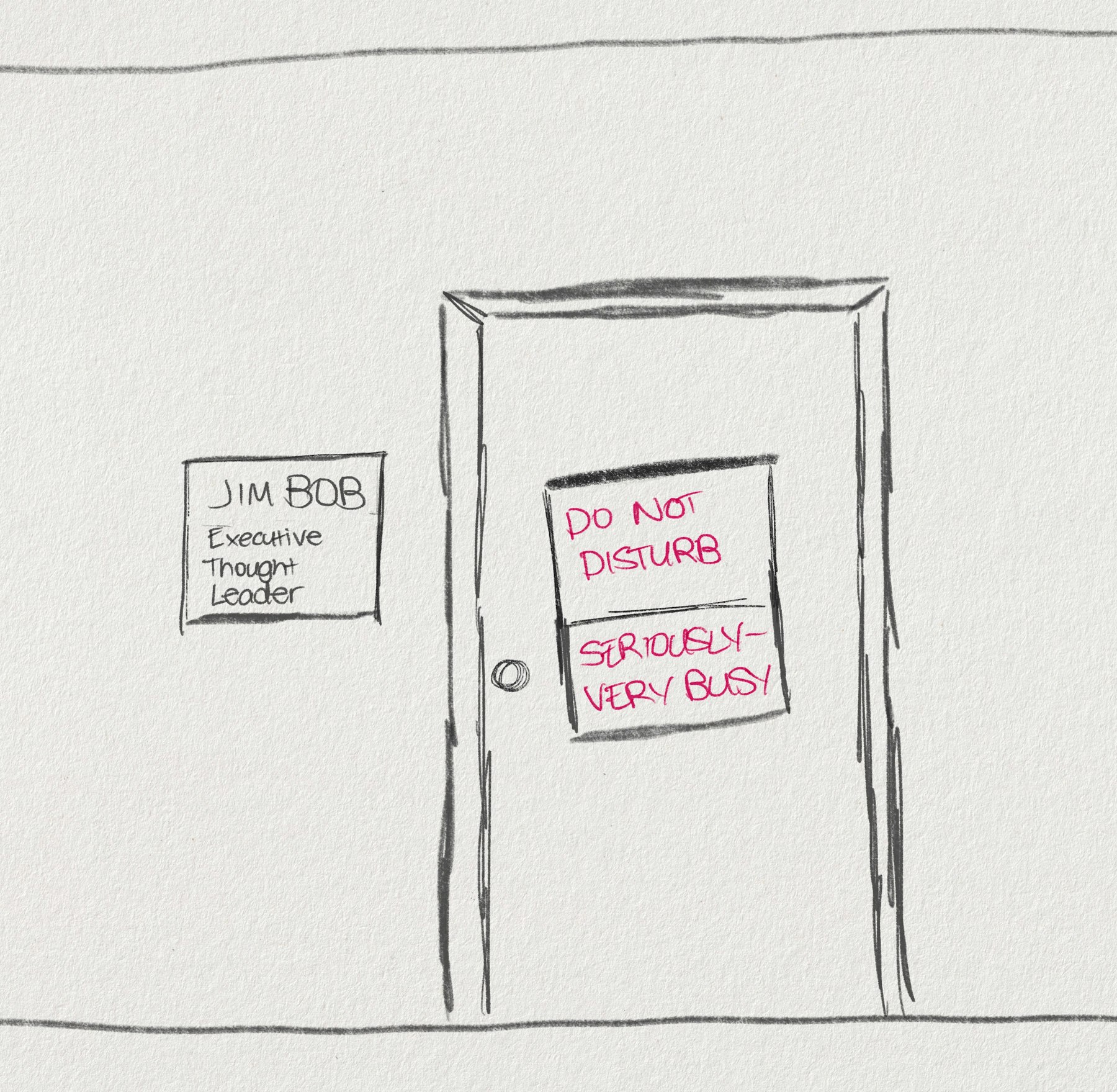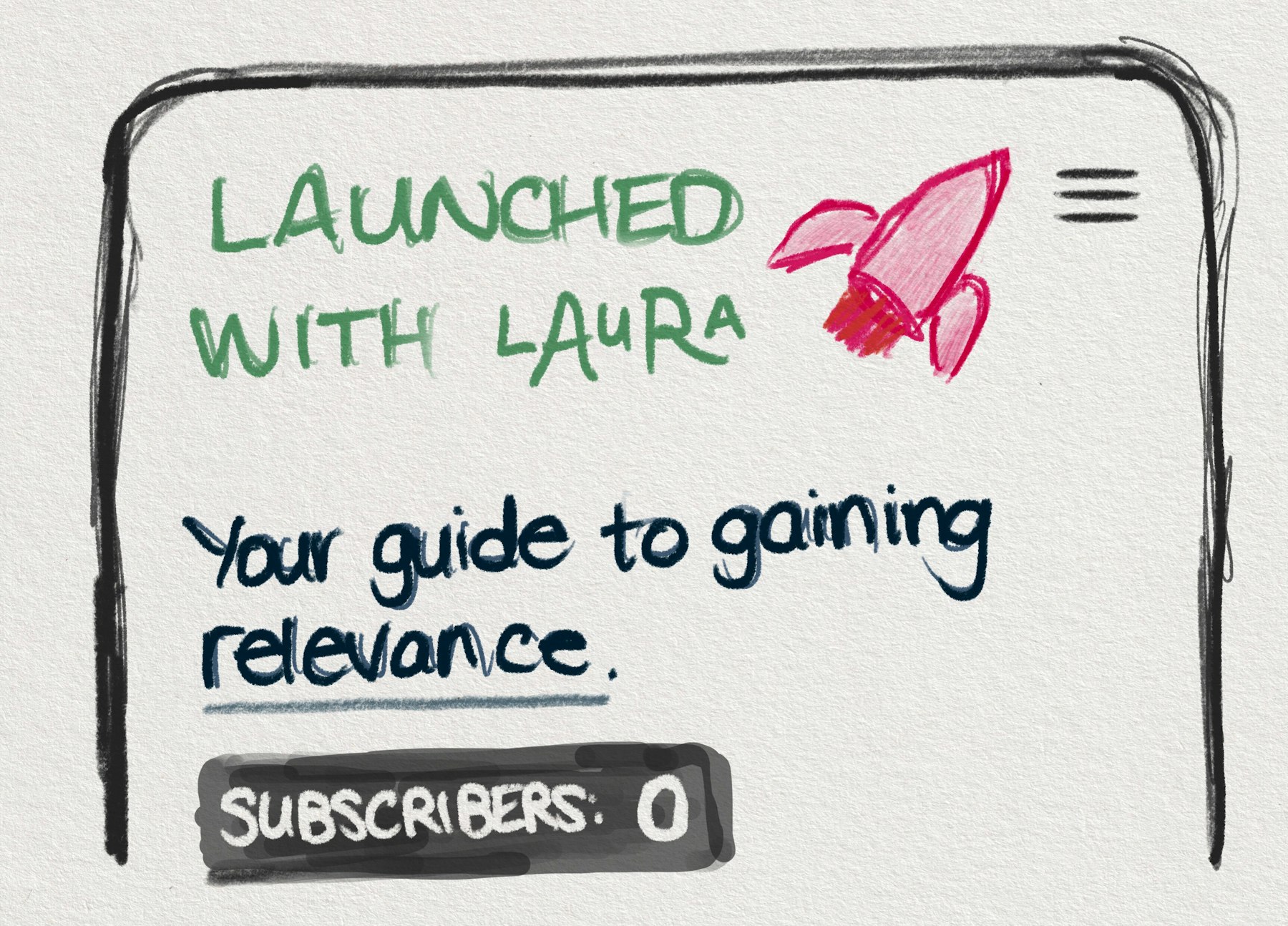Getting people to care about what you're building
Engineers tend to think of marketing sort of like cleaning sewage: probably necessary, but best done by someone else and at a safe distance.
In my opinion, this is because most people confuse “marketing” with “marketing done poorly”. The word “marketing” brings to mind a flood of Facebook invites to their high school acquaintance’s essential oils party.

In contrast, I’ve come to think of marketing a little like grease on a machine: if you can see it oozing out, you’re probably using it wrong.
To reset, let’s flip the narrative a bit: as an engineer, your job is to build something that others can benefit from. Along the way, you probably learn things that others can benefit from. Unfortunately, approximately 100% of the population doesn’t know about all the cool things you’ve done and learned at the end of your work day.
Regardless of how amazing that creation or lesson is, in many cases it doesn’t matter unless you can convince other people that it matters. Marketing is just the process of finding the people that would find your work useful and convincing them of its usefulness.
Consider: the Instagram cofounders could have created the exact same app and it would have faded into irrelevance had they not had a real strategy to convince people to try it.
Marketing is frankly an uphill battle. People are bombarded with junk every day and their brain is hardwired to filter out 99.9% of it. Because of that, marketing requires a deep empathy for your audience and understanding how you fit into their lives rather than the other way around.
Do you find lots of advertising annoying? Do you get pissed off when people spam self-promotional links on LinkedIn or Reddit? That’s great! That means that you’re highly sensitive to bad marketing.
In my experience, this is where most engineers’ relationship with marketing ends. “Ugh,” they say. “Marketers are the worst.” Instead of digging deeper, they speak of their work only in hushed tones to their coworkers and expect it to speak for itself, despite its lack of lips.
This is a mistake: people need to know your thing exists to find it useful. Instead of giving up, start paying closer attention to what things have wormed their way into your brain that you consider useful and how you became aware of those things. Through doing so, you can build a catalog of “brain hacks to get people to care about what you’re doing”. That catalog? That’s your catalog of marketing techniques.

Did you listen to a presentation at a conference on all the ways someone attempted to solve a particular problem before they got it right, and what they learned? They were marketing.
Did you get an email from someone asking if you could discuss a particular problem you’re facing that they’re trying to solve? They were marketing.
Did someone reply to a forum post you made with a detailed answer and a link to an even more detailed answer offsite? They were marketing.
All of these people were marketing because doing so greatly amplifies the reach - and therefore impact - of their work.
I see that skeptical look on your face. “But Charlie!”, you say. “I work on the internals of a product that already has customers! People benefit from the work that I do without me having to market it!”
That may be true, but then marketing becomes critical in other ways. Almost by definition, this type of work can easily go unnoticed by others in your organization. The more visible your work is to others by default, the less you have to work at marketing. But that implies a converse: the less visible your work is to others by default, the more important it is for you to market that work.
If you work on the guts of something, then you should probably be marketing the bejeezus out of your work internally. Then everyone will realize that you deserve that promotion instead of Jim Bob, who watches three hours of YouTube at his desk every day but boy is his feature visible in the product.

Still convinced marketing is fluff? In that case, I’ll pose this question: do you think that Stack Overflow became a success because it was such a great product? Don’t get me wrong: it was a good product, and it got a lot right over the alternatives at the time. However, it’s also no coincidence that the two founders of Stack Overflow were two of the most popular software bloggers at the time making a product for programmers. They both had incredible marketing channels for the target audience of their startup. There was incredible founder/market fit.
Furthermore, how do you find Stack Overflow answers most of the time? If you’re like me, the answer is “It’s one of the first few results on Google”. Stack Overflow is excellent at SEO and helping people find the answer to a problem they’re actively trying to solve. In fact, some of their core community policies exist explicitly to improve SEO marketing: they encourage duplicate questions with different wordings because it covers a wider array of phrases that someone might use to search for an answer.
So how do you market effectively?
I find the following questions to be really helpful when putting together a marketing strategy:
- Who are you trying to make aware of your work?
- Where do those people gather?
- What are the norms about acceptable ways to communicate in that gathering place?
- What do you want them to know about your work?
- What is your target audience trying to achieve? Why should they care?
- How can you demonstrate value immediately?
- Where’s the overlap?
To risk pandering to my fellow engineers: you know that part of Star Wars where Luke is flying his X-wing through the trench on the Death Star? That’s like marketing: there are a million ways for it to go wrong and success is when your message just sneaks in that 2 meter wide exhaust port. One meter off to the left or right and people’s marketing alarms sound and they think “Ugh! I hate marketers.”
These may seem like really basic questions to ask, and they are! But almost all people still get them wrong. Here are a few examples of marketing gone awry in various ways.
Someone might launch their new health startup targeted at doctors on ProductHunt, despite no doctor ever having visited ProductHunt in the history of ever. This is a mistake as old as time: confusing where you hang out with where your target audience hangs out. Remember: who are you trying to make aware of you, and where do those people gather?
Someone might post their new startup launch newsletter on the /r/startups subreddit with a title of “Check out my new newsletter, Launched With Laura!” You’re getting closer now: you’re at least in the same neighborhood as your target audience. Unfortunately, while your newsletter may rock, your marketing skills still need improving: people want to open threads that bring them value, not threads that bring you subscribers. Remember: what are the norms about acceptable ways to communicate in that gathering place? How can you demonstrate value immediately?

Now suppose that Launched With Laura is a newsletter about the history of successful software-as-a-service launches and someone asks a question on the /r/startups subreddit about “How do I launch this product I’ve built?”. You could respond with a comment to this thread saying:
It sounds like you would really enjoy my newsletter, Launched With Laura! Subscribe here.
This is approaching good marketing: you’ve nailed lots of things and may very well get some new subscribers out of your reply, but in my experience you won’t get many. You’re asking someone who lacks proof of your genius to fill out a form – a tough sell. But you’re getting much, much closer!
Instead, suppose that you reply with the following:
Based on my own experience, the best way to develop a launch strategy is to learn from the successes (and failures) of other companies. For example, I know that ExampleX shared a similar target customer with you and found a lot of success by cold emailing the Chief Revenue Officers of hospital systems and including a forecast of the expected integration ROI.
I actually did a case study on ExampleX’s launch a few weeks ago on my newsletter, Launched With Laura: you can get access to that (and 50+ others) if you subscribe here.
Boom! That’s marketing. (Specifically, this “provide-utility-without-clicking-link” technique is often called “zero click marketing”.) You identified your target audience, what they’re trying to achieve, what value you can offer, and how you can show that value immediately. That’s extremely targeted and I would frankly be shocked if you didn’t get a subscriber out of that – your marketing efforts made it through the Death Star exhaust port.
“Bah”, you think, “replying to a single person is so unambitious! Why bother?”
Well, it’s important to consider that there are far more lurkers reading threads than there are people asking questions. For these public one-on-one interactions, the audience is almost always bigger than it seems and you often get bonus authenticity points with others for caring enough to respond thoughtfully to a 1:1 question.
There’s some “marketing technique spectrum” that exists with one side containing a huge audience with wildly differing interests (think: the Superbowl) and the other side containing tiny audiences with very similar and predictable interests (think: Laura’s Reddit thread). I find that engineers almost always err too far on the side of large audiences. Unwittingly, they choose a 0% conversion rate of a large audience over a 30% conversion rate of a much smaller audience. My advice is the same as the inimitable Paul Graham: “do things that don’t scale” and hold off on trying to do outreach to big audiences until you’ve first nailed your messaging at the tiniest of scales, like a single comment thread. You might be surprised at how much can learn from and grow your audience.
For the sake of your mental wellbeing and marketing stamina, my parting wisdom is to track and celebrate the small wins when it comes to marketing. I think that we’re all so used to seeing the staggering numbers associated with late-stage exponential growth that we’re conditioned to believe that anything less than massive, instantaneous success is a failure. I push hard in the opposite direction: I’ve set up Zapier to send me a text message every time my blog gets a new subscriber and it genuinely thrills me. Whatever a “sale” means for your thing - a new subscriber, a new demo request, a view of your presentation - I’d encourage you to find creative ways to amplify the feeling of that win.
Good luck out there Red 5: give ‘em hell.